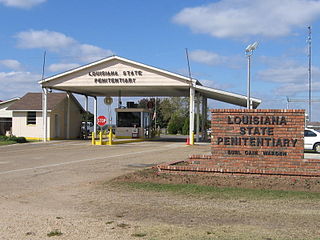
In the United States, capital punishment is a legal penalty in 27 states, throughout the country at the federal level, and in American Samoa. It is also a legal penalty for some military offenses. Capital punishment has been abolished in the other 23 states and in the federal capital, Washington, D.C. It is usually applied for only the most serious crimes, such as aggravated murder. Although it is a legal penalty in 27 states, 20 of them have authority to execute death sentences, with the other 7, as well as the federal government and military, subject to moratoriums.

Capital punishment is a legal punishment under the criminal justice system of the United States federal government. It is the most serious punishment that could be imposed under federal law. The serious crimes that warrant this punishment include treason, espionage, murder, large-scale drug trafficking, or attempted murder of a witness, juror, or court officer in certain cases.

Capital punishment is a legal penalty in the U.S. state of Louisiana.

Capital punishment is a legal penalty in the U.S. state of Ohio, although all executions have been suspended indefinitely by Governor Mike DeWine until a replacement for lethal injection is chosen by the Ohio General Assembly. The last execution in the state was in July 2018, when Robert J. Van Hook was executed via lethal injection for murder.
Capital punishment is a legal penalty in the U.S. state of Oklahoma. The state has executed the second-largest number of convicts in the United States since re-legalization following Gregg v. Georgia in 1976. Oklahoma also has the highest number of executions per capita in the United States.
Capital punishment is one of two possible penalties for aggravated murder in the U.S. state of Oregon, with it being required by the Constitution of Oregon.

Capital punishment in Michigan was legal from the founding of Sault Ste Marie in 1668 during the French colonial period, until abolition by the state legislature in 1846. Michigan, carried out only one federal execution at FCI Milan in 1938.

Capital punishment in Alabama is a legal penalty. Alabama has the highest per capita capital sentencing rate in the United States. In some years, its courts impose more death sentences than Texas, a state that has a population five times as large. However, Texas has a higher rate of executions both in absolute terms and per capita.
Romell Broom was an American death row inmate who was convicted of murder, kidnapping and rape. He was sentenced to death for the 1984 murder of 14-year-old Tryna Middleton. Broom was scheduled to be executed on September 15, 2009, but after executioners failed to locate a vein he was granted a reprieve. A second execution attempt was scheduled for June 2020, which was delayed until March 2022. Broom died from COVID-19 in prison before the sentence could be carried out.
Dunn v. Ray, 586 U.S. ___ (2019), was a February 2019 United States Supreme Court case related to religious freedom. The case attracted media attention in early February 2019.
Bucklew v. Precythe, 587 U.S. 119 (2019), was a United States Supreme Court case regarding the standards for challenging methods of capital punishment under the Eighth Amendment to the United States Constitution. In a 5–4 decision, the Court held that when a convict sentenced to death challenges the State's method of execution due to claims of excessive pain, the convict must show that other alternative methods of execution exist and clearly demonstrate they would cause less pain than the state-determined one. The Court's opinion emphasized the precedential force of its prior decisions in Baze v. Rees and Glossip v. Gross.

Matthew Reeves was an American convicted murderer who was executed by the state of Alabama for the 1996 murder of Willie Johnson Jr. Reeves's case generated attention due to claims he was intellectually disabled.

The execution of Kenneth Eugene Smith took place in the U.S. state of Alabama by nitrogen hypoxia. It was the first execution in the world to use this particular method.
On February 21, 1994, in Jefferson County, Alabama, United States, 37-year-old Vickie Deblieux was kidnapped, tortured and murdered by a group of four youths while she was hitchhiking from Tennessee to her mother's house in Louisiana. Deblieux's body was discovered four days after the murder, and the police later managed to arrest all four killers responsible.

On July 6, 1984, in Elk City, Oklahoma, 7-year-old Layla Cummings was abducted, raped, and murdered by Richard Norman Rojem Jr., who was previously convicted and jailed for sex offenses. Rojem, who was formerly married to Cummings's mother before their divorce, was convicted of murdering Cummings and sentenced to death in 1985. Rojem, who failed in multiple attempts to overturn his death sentence, was incarcerated on death row for close to 40 years before he was executed via lethal injection on June 27, 2024, after the state parole board rejected his appeal for clemency.
On March 6, 1998, 68-year-old contract courier William Clinton Clayton Jr. was shot to death by an unknown person while he was taking money out of an ATM in downtown Centre, Alabama. The killer was later identified as Keith Edmund Gavin, a resident of Chicago who was out on parole after serving 16 years of a 34-year jail term for a 1982 murder case in his native state of Illinois. Gavin was convicted of the murder and sentenced to death in 1999, and he was incarcerated on death row for about 25 years before he was executed via lethal injection on July 18, 2024.

On June 19, 1992, in Oklahoma City, Oklahoma, United States, 31-year-old convenience store owner Kenneth Meers was murdered during a robbery perpetrated by two gunmen. The murderers, Glenn Bethany and Emmanuel Littlejohn, were arrested and charged with robbing and murdering Meers. Littlejohn was sentenced to death, while Bethany received a life sentence in separate trials between 1993 and 1994.
On June 24, 2004, 87-year-old Floyd Hill and his 72-year-old wife Vera Hill were both attacked and murdered in Guin, Alabama, United States, by an intruder who bludgeoned them severely before stealing $140 and prescription drugs from the couple. Floyd was mortally wounded and died on the scene; Vera survived until September 12, 2004, when she died of complications resulting from her injuries.










